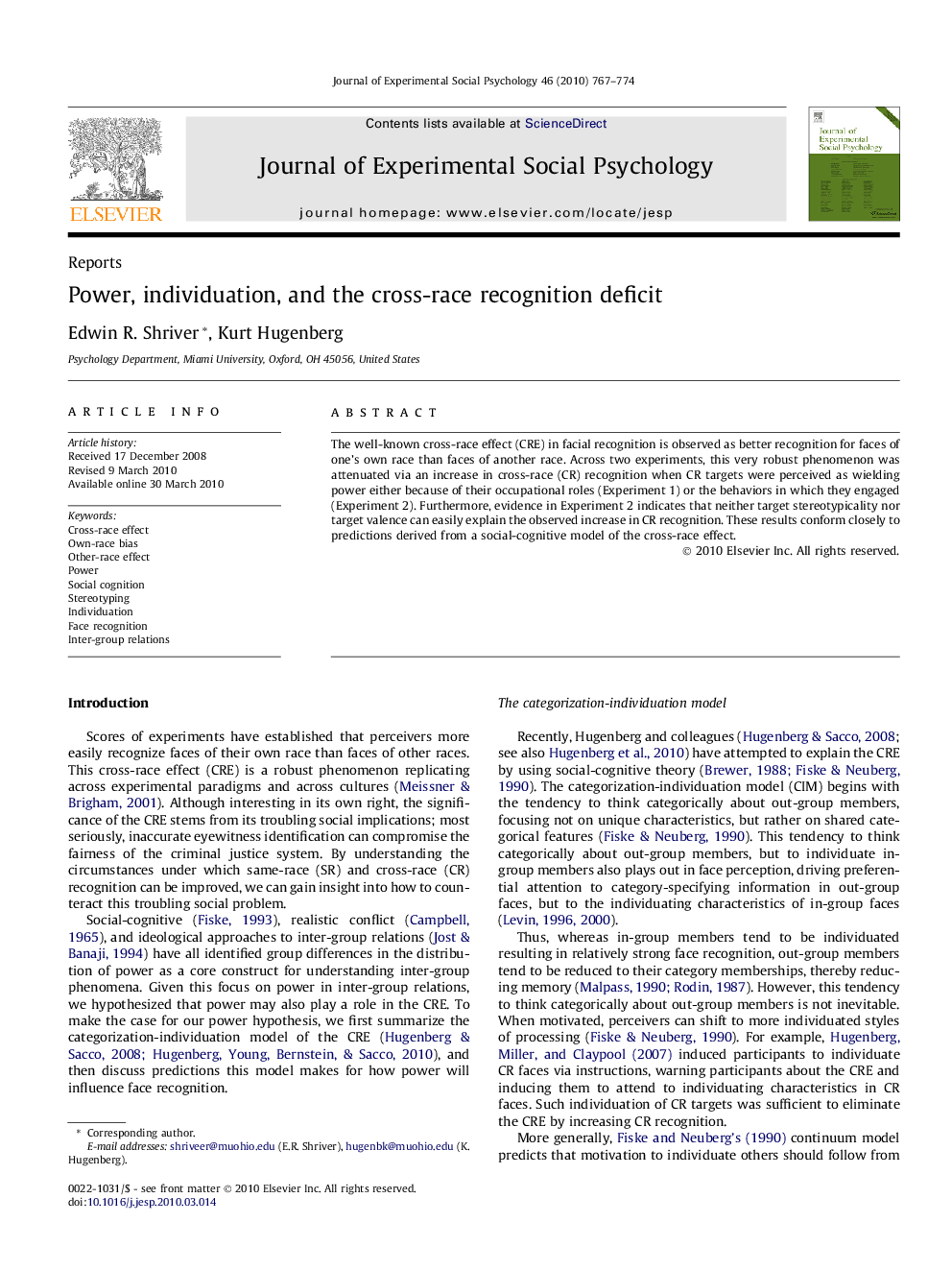| Article ID | Journal | Published Year | Pages | File Type |
|---|---|---|---|---|
| 948652 | Journal of Experimental Social Psychology | 2010 | 8 Pages |
Abstract
The well-known cross-race effect (CRE) in facial recognition is observed as better recognition for faces of one’s own race than faces of another race. Across two experiments, this very robust phenomenon was attenuated via an increase in cross-race (CR) recognition when CR targets were perceived as wielding power either because of their occupational roles (Experiment 1) or the behaviors in which they engaged (Experiment 2). Furthermore, evidence in Experiment 2 indicates that neither target stereotypicality nor target valence can easily explain the observed increase in CR recognition. These results conform closely to predictions derived from a social-cognitive model of the cross-race effect.
Keywords
Related Topics
Life Sciences
Neuroscience
Behavioral Neuroscience
Authors
Edwin R. Shriver, Kurt Hugenberg,
